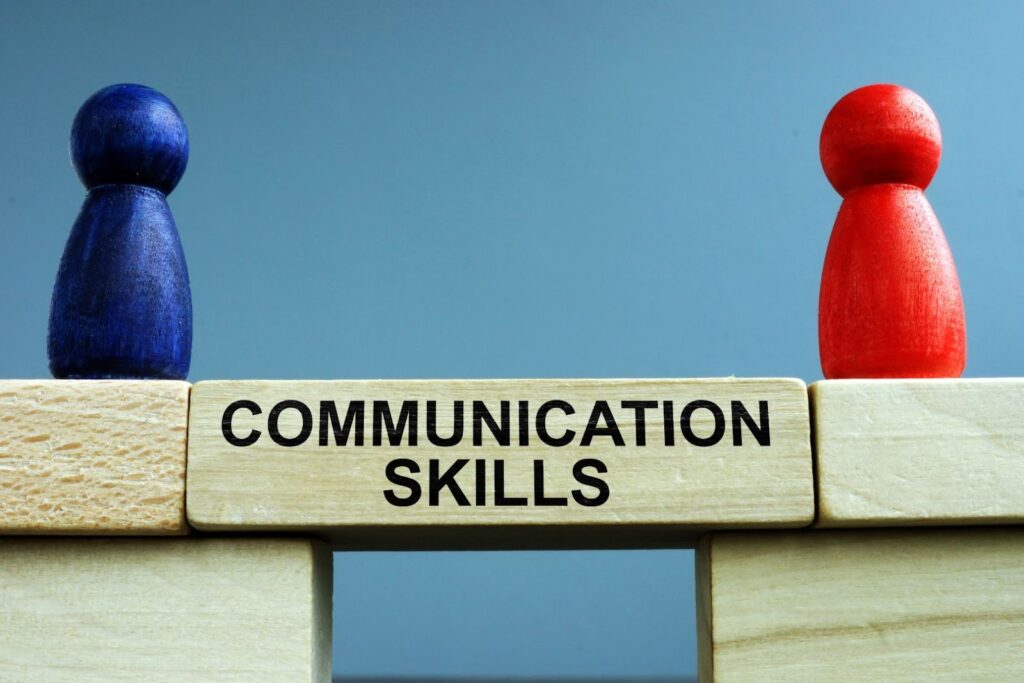Embarking on your first job journey is a milestone in everyone’s life. It’s not just about earning a paycheck; it’s about shaping your future trajectory and building essential skills that will guide you throughout your career. In this blog, we delve deep into the significance of first job experiences. From understanding how these initial roles mold your work ethic to extracting valuable life lessons, we explore it all. Discover how your first job can influence your current position, help you navigate workplace dynamics, and enhance your networking abilities. Join us as we unlock the impact of that pivotal first job experience on your career path and personal growth.
Understanding the Importance of First Job Experience
Before we dive into the impact of first job experiences, let’s first understand why they hold such significance. Your first job marks the beginning of your career path, where you make your own decisions, learn about team goals, and experience the dynamics of the workforce. It’s often the first time you have the opportunity to apply your knowledge and skills in a real-world setting, gaining valuable experience along the way.
The Role of First Jobs in Shaping Career Paths
First job roles can influence the direction individuals take in their careers. These initial work experiences serve as a foundation upon which future career choices are built. The skills, interests, and challenges encountered during your first job can significantly impact the path you choose to follow.
When starting out, it’s common for individuals to take on entry-level positions or internships. These initial job opportunities provide insights into different industries, roles, and work environments, helping in defining long-term career goals. For example, working in a startup may ignite an entrepreneurial spirit, potentially leading to a career path focused on innovation and business development. On the other hand, a first job in a corporate setting may shape an individual’s path towards climbing the corporate ladder and pursuing leadership roles.
Additionally, the relationships built during your first job, whether it’s with co-workers, mentors, or supervisors, can open doors to future career opportunities. Networking within your industry and making a positive impression can lead to job referrals, recommendations, and even promotions. Thus, the role of first jobs in shaping career paths extends beyond the immediate job experience, influencing both short-term decisions and long-term aspirations.
How First Job Experiences Influence Future Work Ethic
The work ethic cultivated during first jobs can have a lasting impact on your future career success. Early job experiences are crucial in developing a strong foundation for work habits and professional behavior. They serve as a platform for you to learn responsibility, time management, and the value of dedication to your tasks.
The first job often acts as a training ground, teaching you the importance of meeting deadlines, following instructions, and going the extra mile to deliver quality work. Whether it’s learning to prioritize tasks, communicate effectively, or handle multiple responsibilities, these skills form the backbone of your work ethic.
Moreover, the attitudes and values developed during your early job experiences shape how you approach your work commitments. The sense of ownership, discipline, and accountability acquired from your first job can contribute to your reputation as a reliable and competent employee. Cultivating a strong work ethic early on not only sets you apart from your peers but also serves as a solid foundation for future career advancements.
Life Lessons from the First Job
The first job often serves as a foundational experience, offering valuable life lessons that extend far beyond the workplace. It teaches the importance of responsibility, time management, and professionalism, instilling a strong work ethic that lays the groundwork for future success. Interacting with colleagues and supervisors fosters communication and teamwork skills, while navigating challenges cultivates resilience and adaptability. The experience of balancing work with personal life highlights the significance of prioritization and self-care. Moreover, encountering diverse perspectives and workplace dynamics fosters empathy and understanding. Overall, the first job serves as a transformative learning opportunity, equipping individuals with the skills, insights, and character traits essential for navigating both professional and personal endeavors throughout life.
Overcoming Challenges and Gaining Confidence
The first job is often accompanied by a set of challenges that test your abilities and resilience. These challenges may include learning unfamiliar tasks, adapting to a new work environment, or navigating office dynamics. Overcoming these obstacles fosters personal growth, instills problem-solving skills, and enhances confidence.
Facing challenges head-on during your first job builds resilience, teaching you how to stay motivated even when faced with difficult situations. It equips you with the ability to think critically, come up with innovative solutions, and persevere in the face of adversity. As you successfully overcome each challenge, your confidence grows, allowing you to take on more responsibilities and tackle bigger goals.
Learning to Navigate Workplace Dynamics
Understanding and navigating workplace dynamics is an important lesson learned during your first job. Each workplace has its unique structure, hierarchy, and unwritten rules, which can be initially intimidating for someone just starting out. However, experiencing diverse workplace dynamics at an early stage helps you develop crucial interpersonal skills and adaptability.
Navigating office politics and relationships, working within a team, and adapting to different personalities are all aspects of workplace dynamics that you learn during your first job. These experiences prepare you for future collaborations, build effective communication strategies, and enhance your ability to work harmoniously in a team. Understanding and manoeuvring these dynamics increases your chances of success, not only in your first job but throughout your career.
Building Networking and Communication Skills

Building a network of professional relationships and honing your communication skills are invaluable takeaways from your first job. These skills benefit you not only within the workplace but also in various aspects of your personal and professional life.
- Establishing connections and networking begins with your first job, where you have the opportunity to meet professionals in your industry, attend networking events, and connect with colleagues.
- Developing effective communication skills, both written and verbal, is essential for conveying ideas, collaborating with coworkers, and building relationships with clients or customers.
- Building relationships with coworkers and superiors can lead to mentorship opportunities, job referrals, and a support system in your professional journey.
- Enhancing interpersonal communication during your first job helps in conflict resolution, negotiation, and teamwork.
- Participating in team projects improves your ability to collaborate, delegate, and work towards shared goals.
- By focusing on building strong relationships and improving your communication skills early in your career, you set yourself up for success and lay the groundwork for future professional growth.
First Job Experiences: A Stepping Stone towards Your Dream Job
Your first job experience is not just a short period of time, but a stepping stone towards your dream career. It provides a platform for exploring your interests, gaining experience, and setting the stage for future opportunities.
How to Leverage Your First Job Experience for Future Opportunities
Taking full advantage of the skills and knowledge gained from your first job helps to create more opportunities for future career growth. Here are some ways to leverage your first job experience:
- Recognize the transferable skills: Identify the skills you acquired from your first job that are applicable to other roles and industries.
- Highlight achievements: Showcase your accomplishments, projects, and contributions during your first job in your resume and future job interviews.
- Seek professional development opportunities: Actively pursue training, workshops, or certifications that enhance the skills developed during your first job.
- Build a professional network: Maintain relationships with colleagues, supervisors, and mentors from your first job, as they can provide valuable insights, referrals, and job leads.
- Use your experience as a reference: Draw examples and lessons from your first job experience when addressing job interview questions or talking about your career journey.
By leveraging your first job experience, you can create a solid foundation for future career prospects and position yourself for greater success.
The Impact of First Jobs on Personal Development

First jobs shape personal development by teaching responsibility, time management, and professionalism. They help build resilience, self-confidence, and problem-solving skills through navigating challenges and setbacks. Interactions with colleagues and supervisors foster communication and teamwork abilities. Overall, first jobs are transformative experiences that equip individuals with essential skills and attitudes for success in both professional and personal aspects of life.
Developing Personal Identity and Self-Understanding
Your first job plays a significant role in developing your personal identity and deepening your self-understanding. During this time, you navigate through different job responsibilities, interact with colleagues, and face challenges that shape your perception of yourself. Here’s how your first job contributes to personal identity and self-understanding:
- Discovering strengths and weaknesses: The challenges and successes encountered during your first job provide insight into your personal capabilities, helping you identify areas of strength and areas to improve upon.
- Gaining clarity on career goals: Through exposure to different industries, job roles, and work environments, you can gain a clearer understanding of your career aspirations, preferences, and values.
- Establishing personal values and principles: Your first job experiences help refine your principles, shaping your ethical framework and guiding your decisions in the workplace and beyond.
- Building confidence and self-belief: Overcoming challenges, taking ownership of tasks, and receiving recognition for your work contribute to building self-confidence, leading to personal growth.
- Embracing responsibility and independence: Your first job provides a sense of autonomy, allowing you to take ownership of your work, make decisions, and experience the consequences, fostering personal accountability.
Your first job is an opportunity for self-discovery, self-reflection, and personal growth, all of which play a crucial role in shaping your overall identity.
Preparing for a Successful First Job Experience
While first job experiences provide valuable learning opportunities, it’s important to be prepared and equipped with essential skills before starting your first job. Let’s explore the skills you should master and the expectations you should set to ensure a successful first job experience.
Essential Skills to Master Before Starting Your First Job
Before embarking on your first job, there are several essential skills worth mastering to set yourself up for success. Here are some skills to focus on:
- Communication skills: Ensure you have strong written and verbal communication abilities, including email etiquette, active listening, and effective expression.
- Time management: Develop time management techniques, such as prioritizing tasks, setting goals, and managing distractions, to effectively meet deadlines and handle multiple responsibilities.
- Problem-solving abilities: Enhance your problem-solving skills through critical thinking, creativity, and the ability to find innovative solutions to challenges.
- Teamwork skills: Practice collaborating with others, sharing ideas, and working towards common goals, both in academic settings and extracurricular activities.
- Adaptability: Prepare yourself to embrace change, adapt to new work environments, and be open to learning new technologies, processes, and job requirements.
- Setting expectations for your first job is equally important. This ensures that you have a positive and realistic mindset, enabling you to make the most of your first job experience.
Setting Expectations for Your First Workplace
Setting realistic expectations is crucial for adapting to your first workplace. Here are some aspects to consider when setting expectations:
- Workplace culture: Research and gain an understanding of the company culture, values, and norms, as this will help you assimilate into the organization more effectively.
- Job responsibilities: Have clear expectations of the tasks, projects, and goals that you will be responsible for, ensuring alignment with your skills and career goals.
- Learning opportunities: Anticipate opportunities for growth, such as training programs, mentoring, or professional development initiatives, and set expectations for actively seeking these learning experiences.
- Work-life balance: Recognize the importance of maintaining a healthy work-life balance, and set boundaries to avoid burnout or sacrificing personal well-being.
- Continuous learning: Expect that your first job is just the beginning of a lifelong learning journey, and embrace opportunities for growth and improvement.
- By mastering essential skills and setting realistic expectations, you can set yourself up for a successful and fulfilling first job experience.
Turning First Job Experiences into Career Milestones

Turning first job experiences into career milestones involves leveraging the lessons and skills gained to propel oneself forward in the professional realm. It begins with reflection, extracting key takeaways from the initial role such as communication skills, time management, and problem-solving abilities. These foundational skills serve as building blocks for future success. Additionally, networking with colleagues and supervisors from the first job can open doors to new opportunities and mentorship relationships. By actively seeking feedback and continuously learning and growing, individuals can showcase their capabilities and position themselves for advancement. Each experience, no matter how humble, contributes to a broader narrative of career development. With perseverance and strategic thinking, first job experiences can serve as stepping stones towards achieving long-term career goals and making meaningful contributions in one’s chosen field.
Learning to Adapt and Grow from Job Experiences
Each job experience provides an opportunity to adapt, learn, and grow, contributing to your personal and professional development. Here’s how job experiences help in cultivating adaptability and facilitating growth:
- Problem-solving: Job experiences require you to solve day-to-day challenges, teaching you to think critically, analyze situations, and devise innovative solutions.
- Resilience: Overcoming obstacles, pushing through failures, and navigating uncertainties develop resilience, allowing you to bounce back from setbacks and persevere in challenging situations.
- Diverse perspectives: Working in different job roles, industries, or organizations exposes you to diverse perspectives, enabling you to embrace new ideas, cultures, and ways of thinking.
- Continuous learning: Job experiences provide ongoing opportunities to expand your knowledge, learn new skills, and stay updated with industry trends, fostering personal and professional growth.
- Adaptability: Adapting to changing job requirements, team dynamics, and workplace environments strengthens your adaptability, allowing you to thrive in different situations and industries.
By embracing each job experience as a chance to adapt and grow, you build a resilient mindset that propels you forward in your career journey.
How First Job Experiences Set the Tone for Future Success
First job experiences serve as the cornerstone upon which future success is built. They establish a framework for professional growth, shaping attitudes, habits, and skills that pave the way for long-term achievement. These early roles instill foundational principles such as work ethic, responsibility, and interpersonal communication, which form the bedrock of a successful career. Moreover, navigating the challenges and learning opportunities inherent in first jobs fosters resilience, adaptability, and problem-solving abilities, essential traits for thriving in any professional setting. Additionally, the relationships formed and networks established during this time can open doors to future opportunities and mentorship. By approaching first job experiences with a positive attitude, a willingness to learn, and a commitment to excellence, individuals set themselves on a trajectory for continued growth and accomplishment in their chosen field.
Moving Forward After Your First Job
Moving forward after your first job is a pivotal moment in your career journey. It’s an opportunity to reflect on the experiences and skills gained, setting clear goals for the future. Assessing your options involves researching various career paths, considering factors like industry alignment and growth potential. Updating your resume and online profile ensures your accomplishments are highlighted effectively. Additionally, continuous skill development through education and networking expands opportunities. Staying flexible and persistent while seeking feedback helps navigate challenges and propel career advancement. Ultimately, embracing this transition with optimism and determination sets the stage for continued growth and success in your professional endeavors.
Conclusion
In conclusion, your first job experience plays a significant role in shaping your career path, work ethic, and personal development. It provides invaluable life lessons, helps you overcome challenges, and builds essential skills like networking and communication. Reflecting on memorable first job stories can offer unexpected lessons and growth opportunities. By leveraging the transferable skills gained from your first job, you can pave the way for future career milestones and success. Embrace the impact of your first job experience on your current job, use it to navigate transitions, and reflect on how it defines your career path. Your first job is a stepping stone towards achieving your dream job and personal growth.